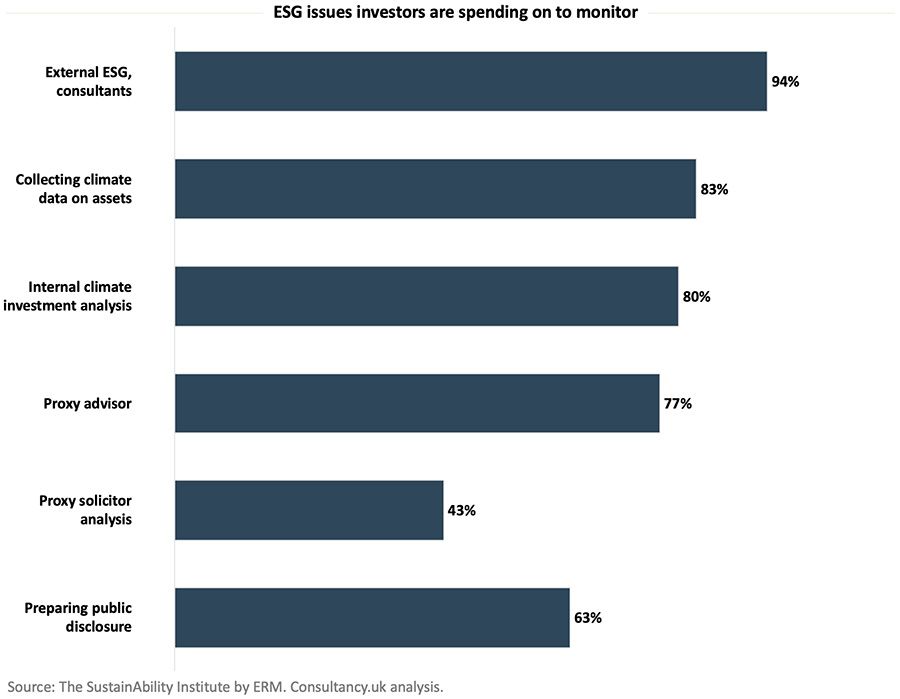Environmental, social and governance (ESG) investing has seen robust capital inflows in 2020 thanks to the increase in demand from socially conscious investors.
But despite its popularity, ESG investment products have come under fire for greenwashing, flawed strategies and data privacy issues. Let’s see why ESG Investments need a rethink!
Greenwashing & Unclear Labelling
Greenwashing is a term used to describe the disclosure of deceptive information that may appear to promote environmental values, but in fact do not. It involves making false or misleading claims about the sustainability efforts of a company or social responsibility practices. Greenwashing misleads consumers into thinking they’re supporting businesses that are genuinely concerned with environmental protection when they may not be.
The most common concern that investors had was that many ESG products are not living up to their labels. Greenwashing is a major issue—companies tend to market themselves as having strong ESG policies when they actually don’t.
Many investors also noted that there is often a lack of clarity when it comes to labelling and what exactly constitutes an “environmentally friendly” or “socially responsible” product. Without clear guidelines and definitions, it can be difficult for investors to determine which companies are truly dedicated to sustainability versus those who simply want to make money off the trend.
Here are four examples of how companies "greenwash" products and brands https://t.co/VKpJVaLCqa
— Bloomberg Pursuits (@luxury) January 18, 2023
Rethinking Strategies & Finding Quality Investments
The increasing scrutiny surrounding ESG investments has resulted in much debate about how best to measure their success or failure. There is no denying that last year’s “ESG backlash” has certainly affected investor sentiment – especially considering the looming prospect of a recession in many major global economies this year.
However, it is important to note that these criticisms should not diminish the value of ESG funds as they remain one of the most promising asset classes available today. In fact, many investors still view them as attractive options because they promise both financial returns and social impact – something which remains increasingly important for many individuals around the world today.

Despite these issues, some investors remain optimistic about ESG investments—noting that with better regulation, transparency and oversight, these products can still potentially meet their goals of creating positive change in society while providing financial returns for investors. Experienced mindful investors also said they believed it was possible to sieve through all the noise out there and find quality investments that achieve what they claim to do—as long as one does their due diligence properly.
Sustainability Marketing
The number of companies that use sustainability as a marketing weapon is growing and investors are increasingly aware of this. Many investors now recognize that sustainability is a competitive advantage for companies, and are demanding more transparency from them in disclosing their environmental practices.
Investors should also consider the impact of such disclosures on the stock price or risk profile of an asset – as it can lead to higher costs (for instance, if there is an increased need to comply with certain regulations) or lower returns (due to the reputational risk associated with greenwashing).
Companies should not be focusing on sustainability only with a marketing perspective. Rather, they should be investing in sustainability initiatives that are impactful and beneficial to their stakeholders.
Looking Ahead
The success of ESG investments in the future largely depends on how well companies can address these issues. As more investors become aware of the potential risks associated with greenwashing and unclear labelling, it is likely that there will be an increased push for better regulation and oversight of ESG products.
Investors should also consider whether their portfolio is aligned with their personal values when investing in such products – as it is important to make sure that they are truly making a positive difference rather than just using the label to generate profits. With the right strategies, investors can still find quality ESG investments that offer returns while making a positive contribution to society.
Ultimately, the ESG investing trend shows no signs of slowing down in the near future and will likely remain an attractive option for many investors around the world. With more education and oversight, ESG funds can be a viable option for those looking to make a difference while also achieving financial returns.









